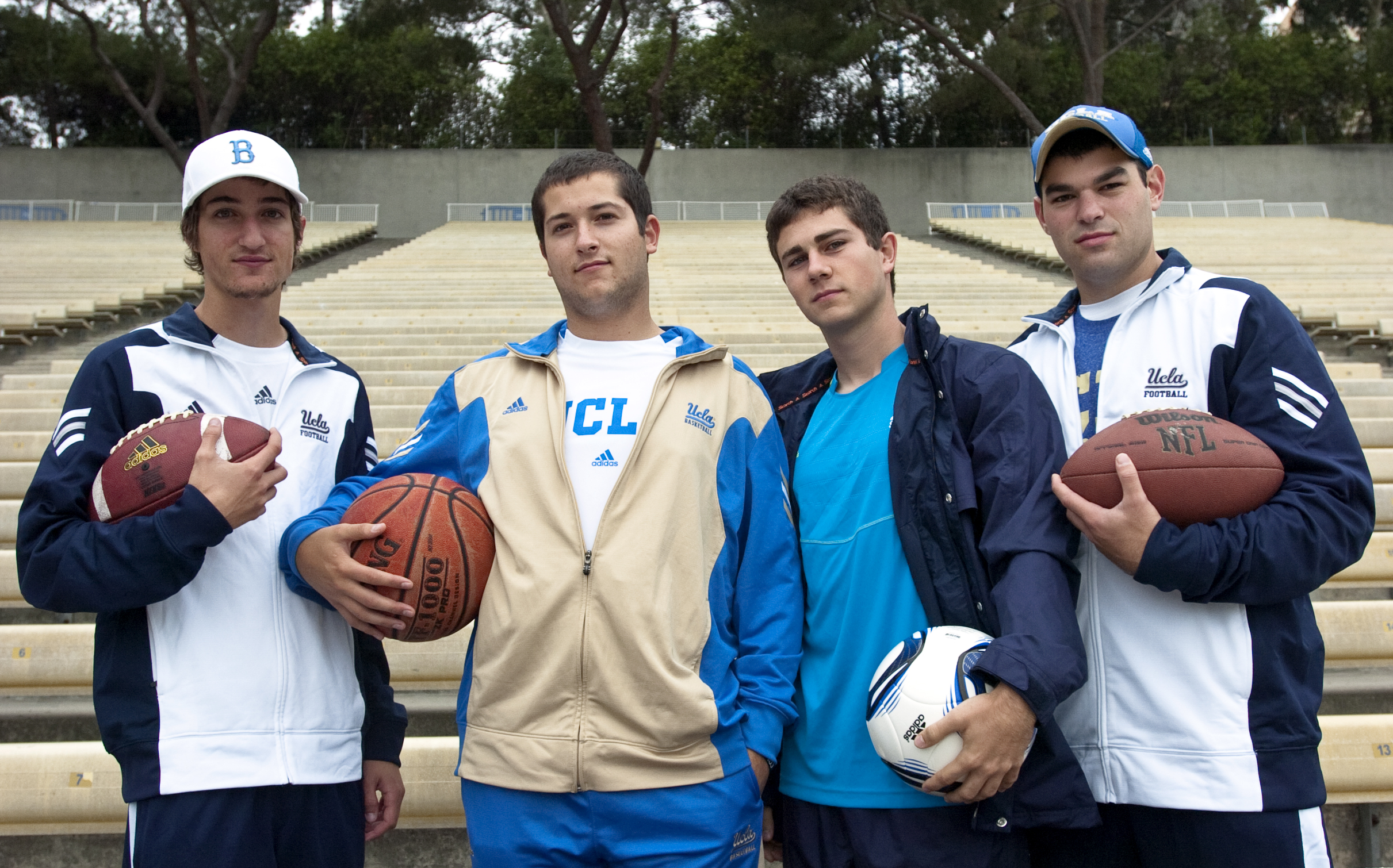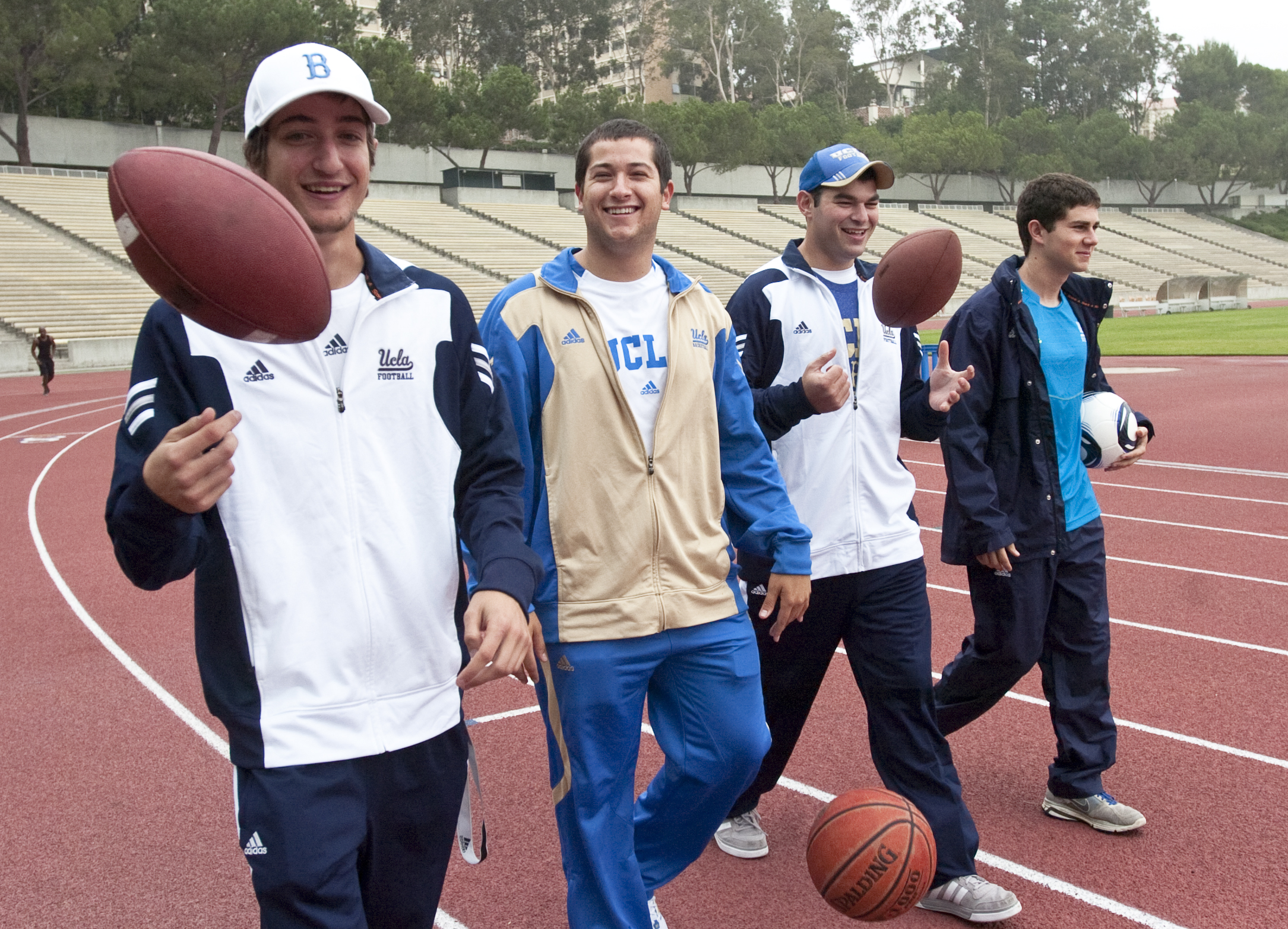
Team managers for football, basketball and men’s soccer talk about how their unique jobs.Team managers for football, basketball and men’s soccer talk about how their unique jobs.
Picturing a typical practice field for any sport, images of cones organized in patterns for drills, balls sprawled out and equipment readily available instantaneously come to mind.
Well, they just didn’t appear there on their own.
Doing the thankless job behind the scenes at these many practices and games are team managers, day in and day out.
Despite the recognition that many athletes receive, these team managers do what they do for the same reason that the athletes compete: for love of the game and UCLA.
“I’ve been a UCLA football fan since I could remember,” second-year global studies student and football team manager Greg Kahan said. “Both of my parents went to UCLA, so I’ve been going to games since I was a baby. I love the program and all the players and wanted to get more involved.”
“I’ve loved basketball since I’ve ever played it,” third-year mathematics student and men’s basketball team manager Drew Tassinari added. “During practice when they’re playing five-on-five and working on this and that, just watching the talent on the floor is unreal.”
However, other reasons to take the job exist as well.
“I want to get into the sports industry for a career, so I was able to meet a bunch of people through managing the team, and it was a great opportunity at the time, so I took it,” third-year economics student and football team manager Aaron Weiner said.
“I was looking around at different campus jobs, and this kind of came up out of nowhere, and it’s definitely a lot more fun than anything else I could find on campus,” third-year mechanical engineering student and men’s soccer team manager Jonathan Harrison added.
Although the managers get the perks of priority enrollment for classes, some free clothes and a small stipend, these benefits aren’t what keep them around.
“Compensation is not very much. You don’t do this job for the money; you do this because you love football,” Kahan said. “It comes out to probably about $2 an hour. Money’s nice because we do work hard, but we definitely don’t do it for the money.”
Because of the numerous hours that these managers work, the money becomes almost irrelevant.
Much like the athletes, the managers have to be at every practice and every game, dedicating a large portion of their daily lives to their craft.
“It’s like 45 hours a week with travel and everything,” Weiner said.
“We’re basically there before the players get there, and we leave after the players leave,” Tassinari added. “It’s like a full -time job on top of classes.”
Just like the athletes, the managers have to find a way to balance schoolwork with their passion.
“On the road, you normally leave Friday for Saturday games, so you miss classes that day, so I always email my professors and they’re normally cool with it,” Kahan said.
Along with balancing academics with the time commitment, the managers also have to be knowledgeable about the sports with which they work.
The job doesn’t only entail setting up drills, readying equipment and doing laundry, but also participating actively as well.
“During practice we run drills, we make passes, we set screens ““ you have to know basketball to be a manager,” Tassinari said.
“Coach Howland wants you to know basketball and makes sure everyone around him knows basketball.”
One of the men’s soccer team managers is even slated to become a goalkeeper for the team next year, Harrison said.
The managers are critical to the success of their programs and understand their roles.
“We’re pretty much what make the team go,” Kahan said. “Without the managers, there’d be nothing.
It’s a lot of hours but in the end, it’s worth it because you’re working towards a goal ““ winning football games.”
Aligning their goal with that of the players ““ winning games ““ the team managers have immersed themselves into being members of the team.
They don’t just arrange cones, do laundry and set up equipment, they also contribute to the team’s overall success.
This isn’t just a drill, it’s the real deal.
